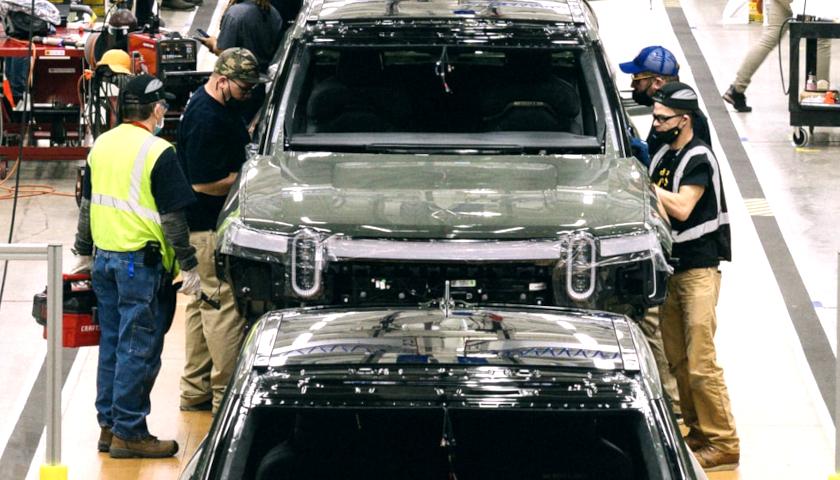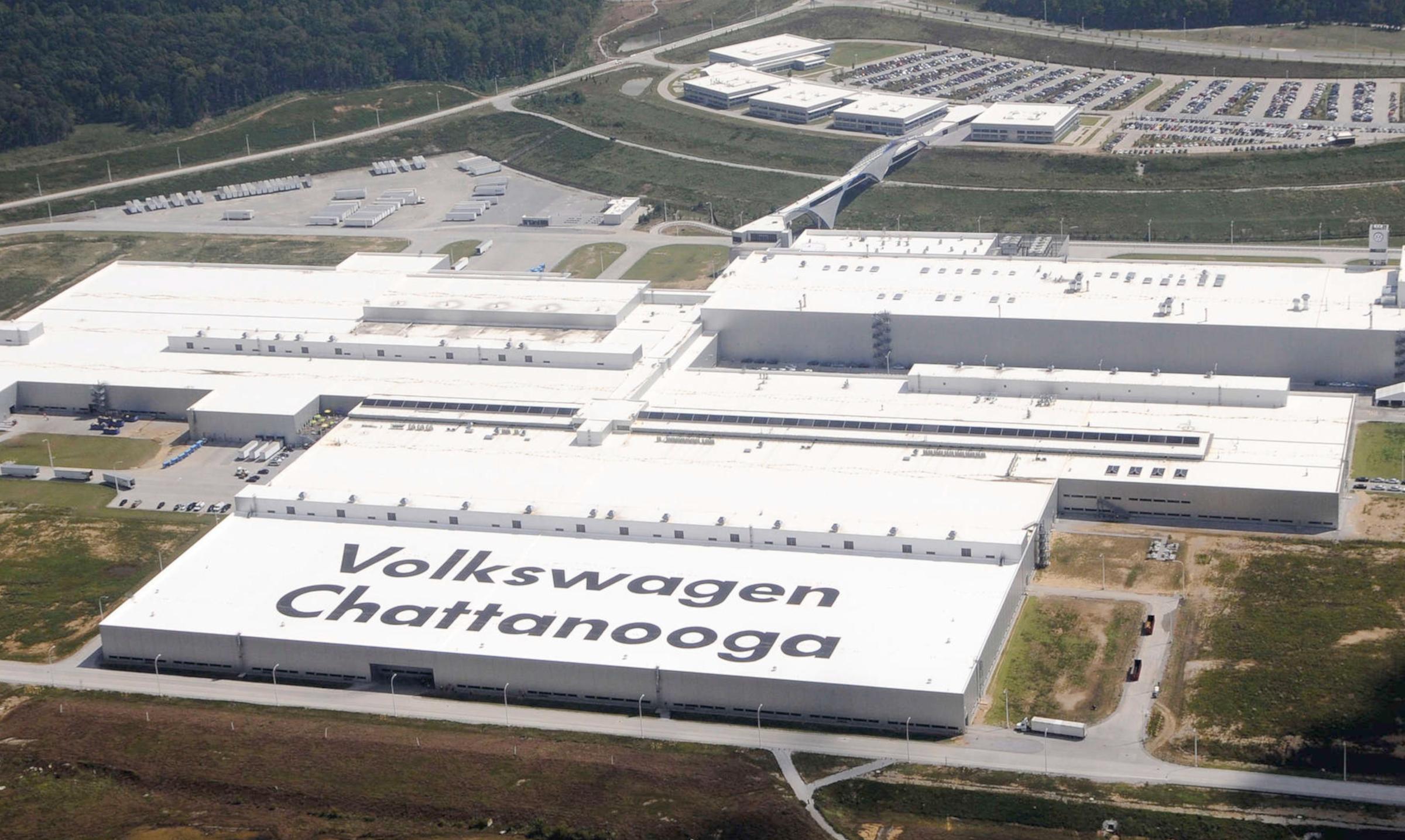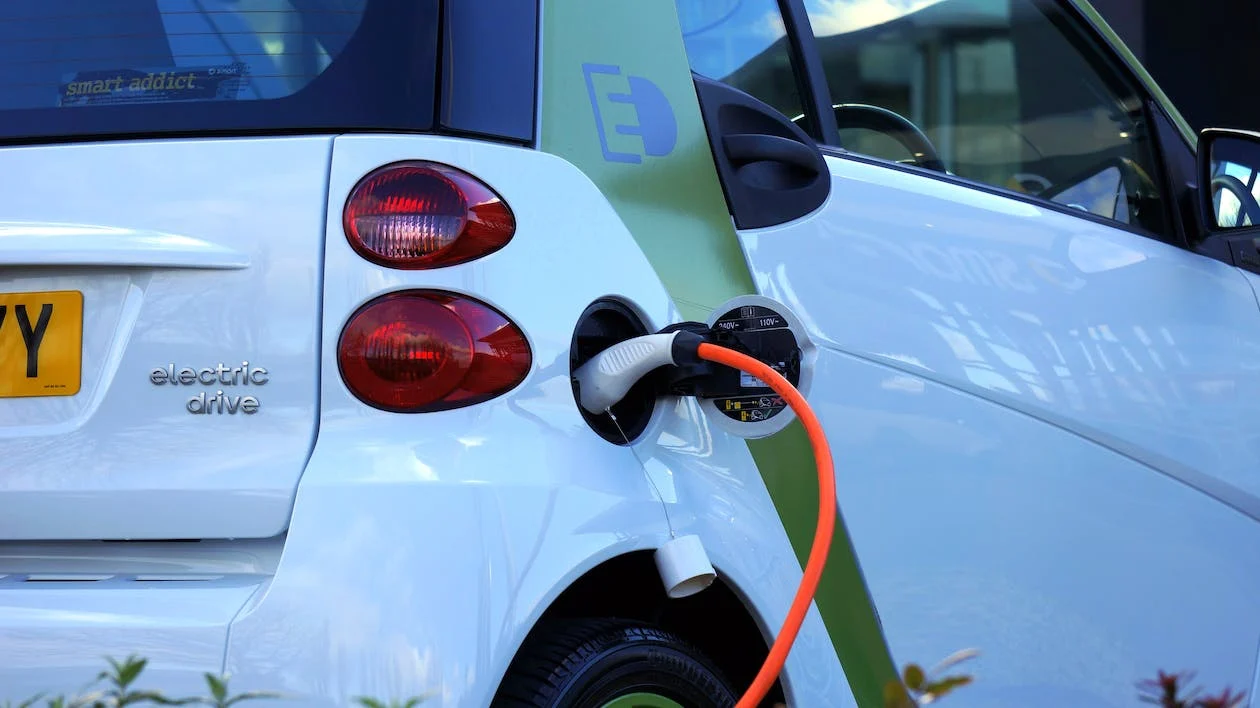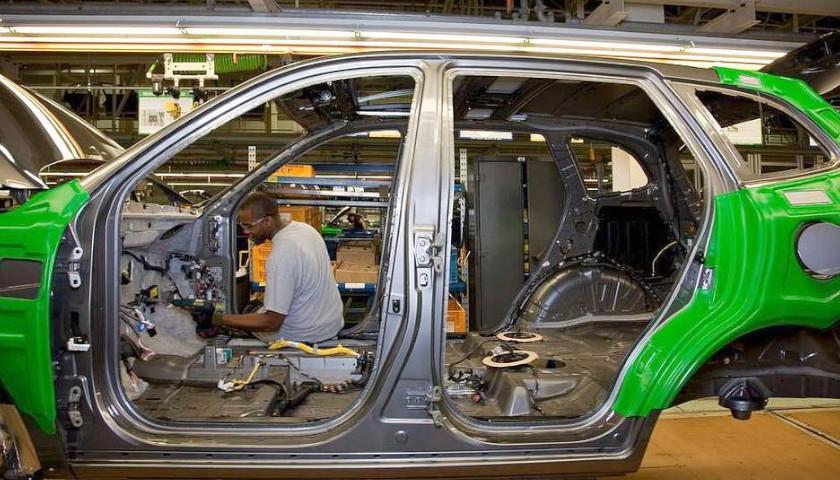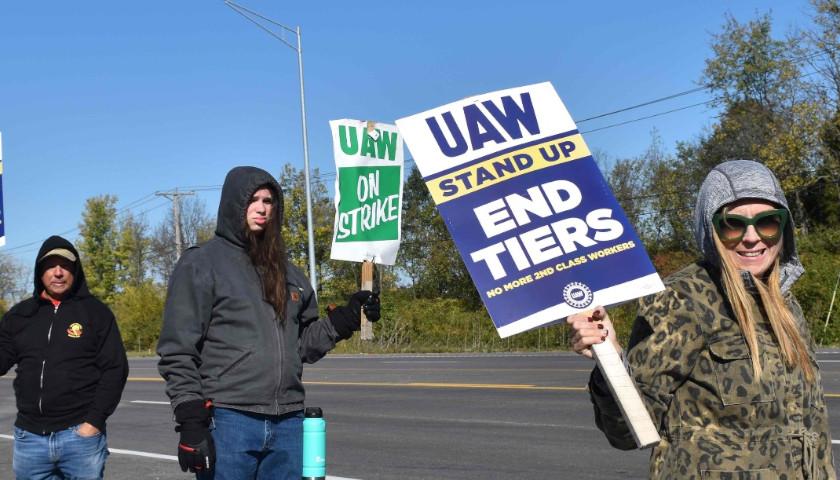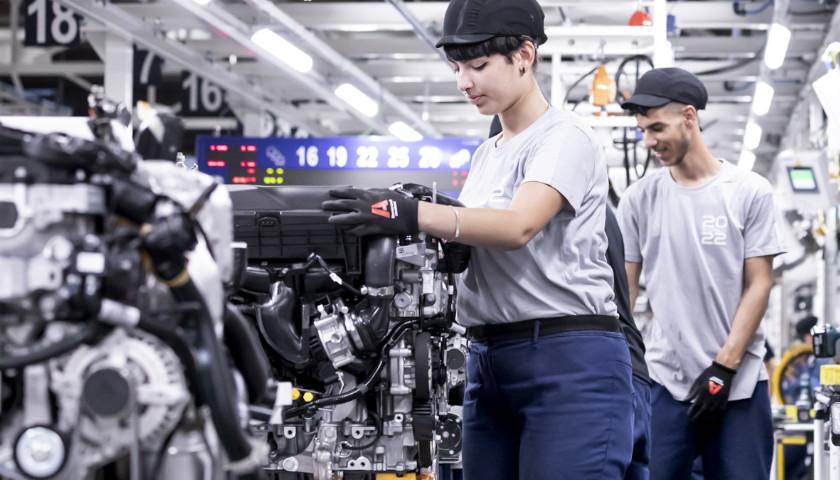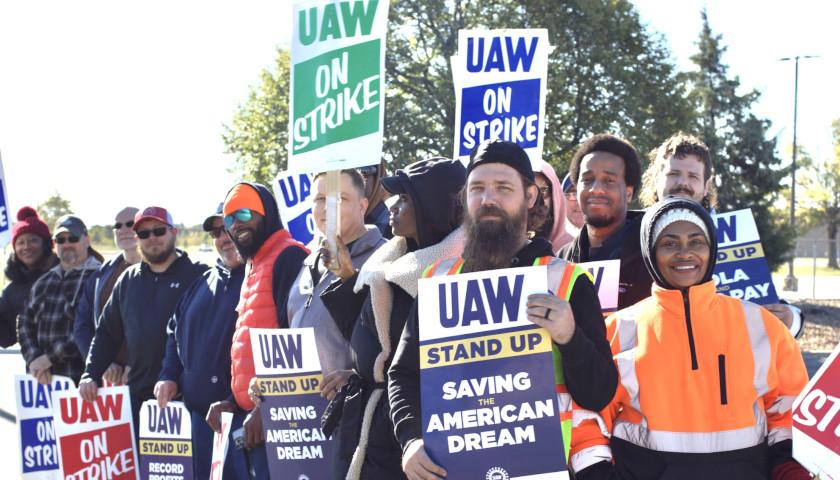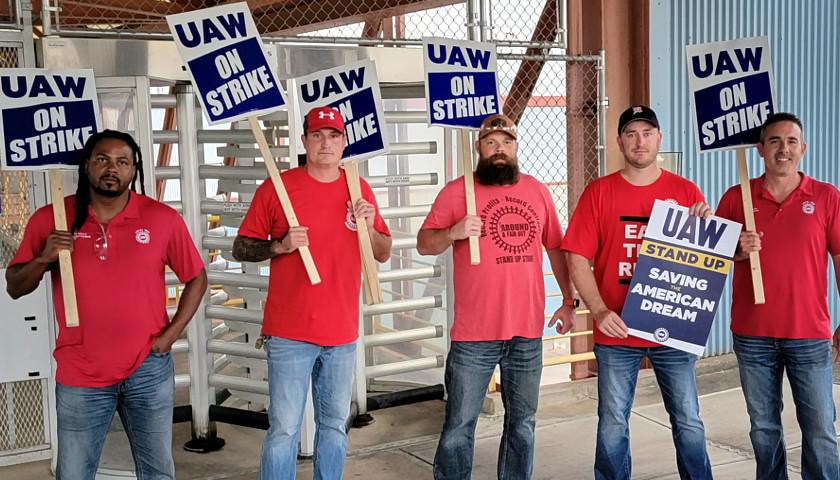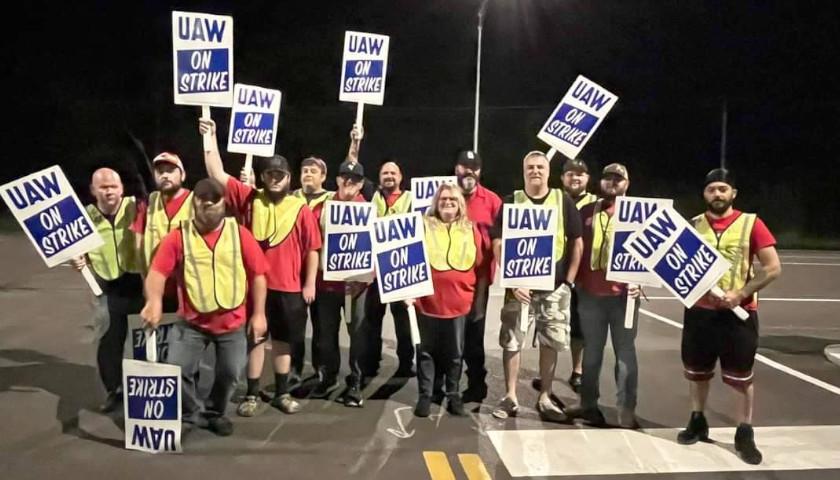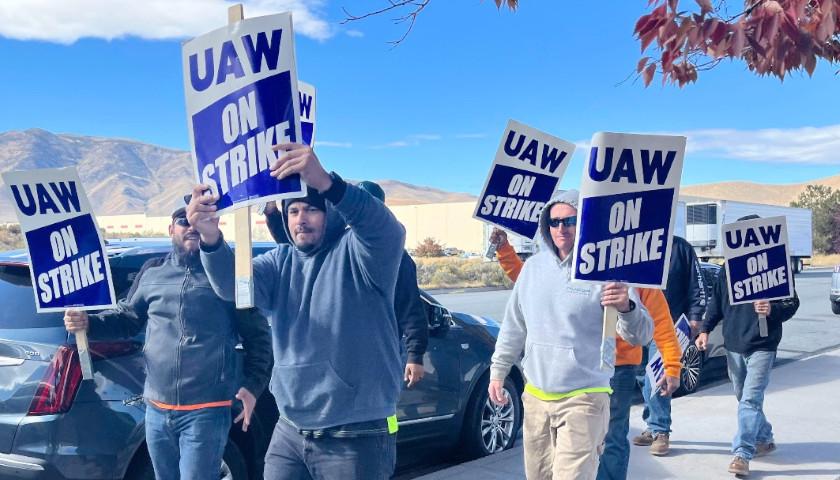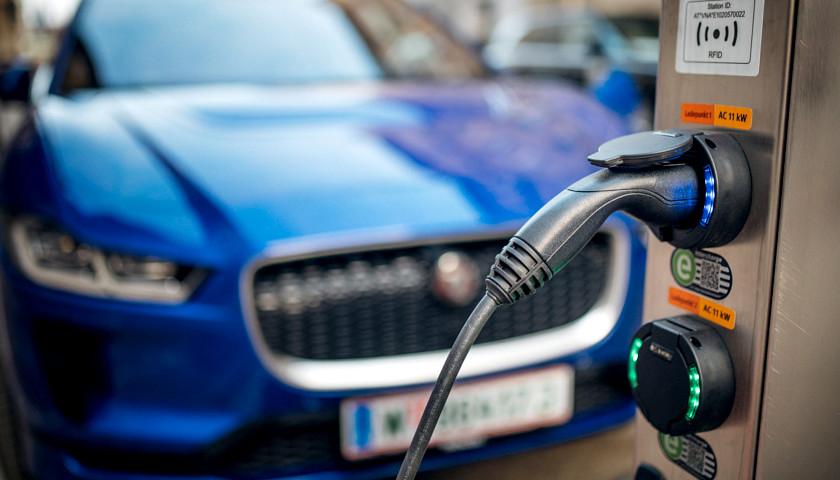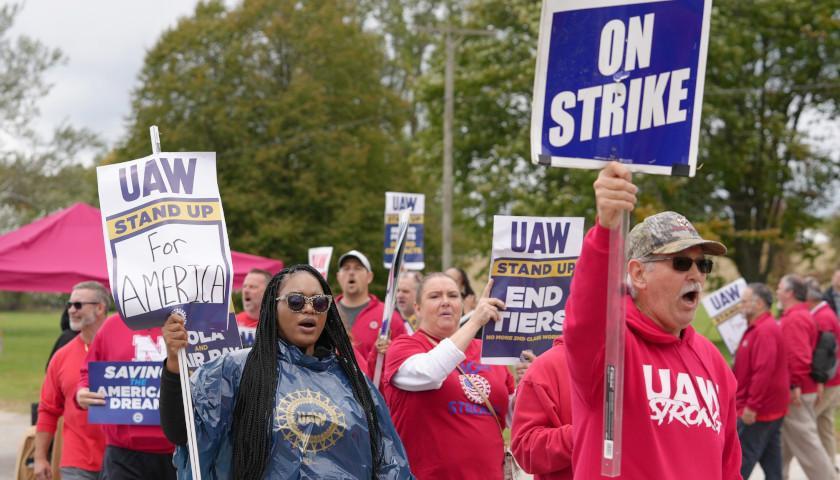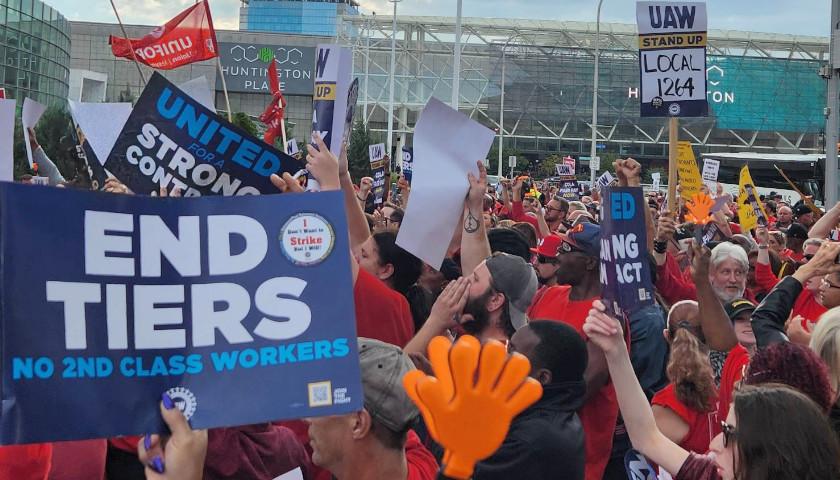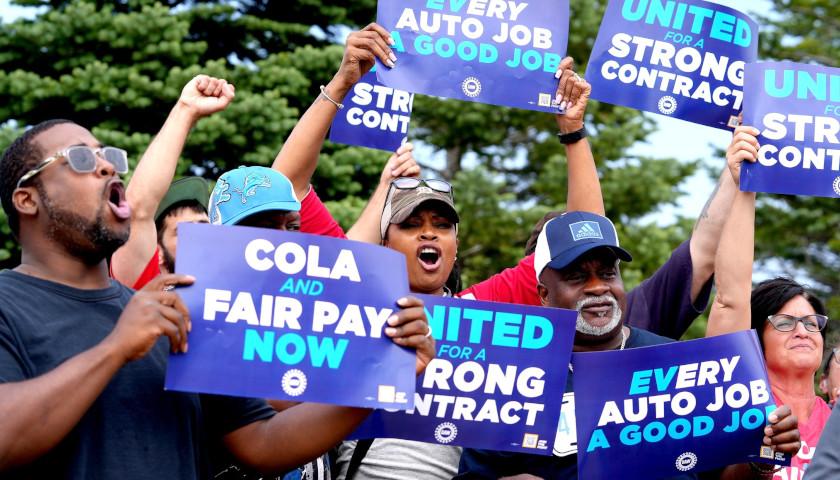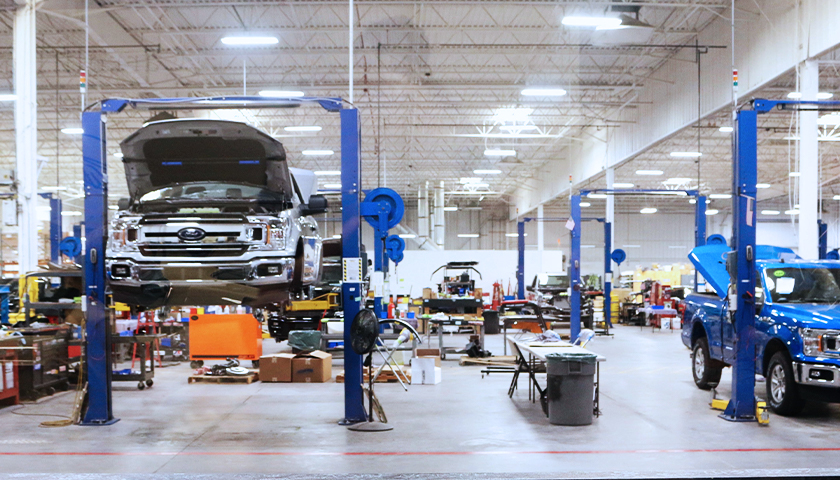by Nick Pope Electric vehicle (EV) production is costing most American automobile manufacturers billions of dollars, with a range of factors driving their unprofitability as unionized auto workers are striking to demand more from management. Companies like Rivian, Ford and General Motors (GM) are currently losing money on each EV that they sell, while Stellantis appears likely to lose money up front on their EVs when they bring them to market in 2024, according to numerous reports. Rivian has struggled immensely, according to The Wall Street Journal, and the “Big Three” carmakers are facing down the ongoing United Auto Workers (UAW) strike, with the union making demands that threaten to push costs even higher. The UAW is seeking to exact major concessions, with EVs featuring as a key driver of the labor dispute. Prior to the strike, the average UAW worker in Grass Lake, Michigan, made about $45,000 per year, according to data from ZipRecruiter. The UAW is seeking a 36 percent pay bump over the course of a four-year contract, yearly cost-of-living adjustments, restoration of pre-bailout pension benefits for all of its employees, increased protections to ensure job security, limits on the use of temporary workers and a 32-hour work week, according to CBS…
Read the full story

